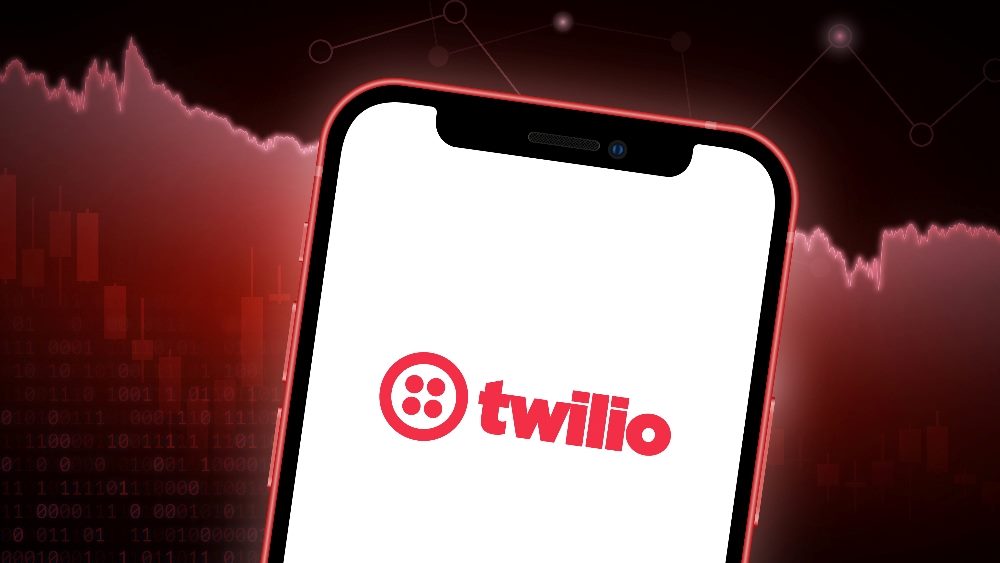The Gist
- Flex Mobile app deployment. The promise: requires no development effort and extends customer service capabilities.
- Voice Intelligence API. Provides tools for integration and customization of language operators.
- Personalized IVR uses real-time data. Enhances customer interactions with AI-derived traits for personalized experiences.
Twilio, a San Franciso-based customer engagement platform provider, unveiled in a webinar last week an array of product updates centered on two primary themes: ROI-boosting intelligent customer engagement and evolving trust solutions. Twilio officials stressed the company’s ability to enhance customer interactions through advanced technology and data-driven insights.
The conversation revolved around the importance of personalized messaging and reaching customers at the right moment, as well as the challenges and potential of “magic moments.” Twilio officials discussed the benefits of Twilio's Flex Mobile application, which enables employees to communicate with customers on the go without development effort. They also highlighted the importance of using AI to analyze interactions data and create valuable customer feedback loops.
Additionally, they discussed how Twilio's latest features can help organizations improve customer support and messaging deliverability using AI, including voice intelligence solutions and proactive insights powered by AI.

Twilio: The Big Picture
Twilio has had some ups and downs in the financial arena. It saw layoffs late last year and the departure of its CEO Jeff Lawson due to investor pressure. Lawson did not get into much specifics around his departure in a company blog post.
Zacks Equity Research reported June 25 that for the full year, the Zacks Consensus Estimates project earnings of $3.10 per share and a revenue of $4.35 billion, which is up +26.53% and +4.73%, respectively, from last fiscal year.
Morgan Stanley analyst Meta Marshall, though, recently lowered Twilio “from Overweight to Equal-Weight,” citing an absence of growth drivers for the next 12 months. The analyst also cut the stock's price target from $70 to $60. That cautious position on Twilio stems from the lack of a revenue catalyst in the next 12-18 months, which could hinder multiple expansion and make it difficult to meet FY25 Street expectations.
For Segment, Twilio’s customer data platform, which currently makes up less than 10% of revenues, its focus on enterprise software sales, as opposed to the developer sales that dominate the rest of Twilio's platform, along with significant structural and leadership changes, suggests it will take time for growth to pick up again, according to Marshall.
Twilio got some good news when it was named a leader in the Gartner Communication Platform as a Service (CPaaS) this past month.
Now on to some product roadmapping.
Related Article: Twilio Invests in Enhanced Interoperability With Data Platforms
Flex Mobile Empowers Customer Service on the Go
Philip Borden, principal product marketing manager for Twilio Flex, a digital engagement software platform, introduced Flex Mobile, a pre-built application for iOS and Android that requires no development effort to deploy.
“Flex Mobile works with your same users, phone numbers, routing queues and customer data,” Borden said. “It extends your solution to every employee and gives them access to all of the information and the functionality that you've already configured in Twilio Flex. All an agent needs to do is download the application in the App Store or Google Play, sign on using single sign-on, and place outbound calls, receive inbound calls and start communicating over digital channels.”
Available in public beta, Flex Mobile aims to allow employees to provide consistent and compliant customer service from anywhere, enhancing both customer and employee experiences, according to Borden, who added, "The real power of Flex Mobile is being able to extend a single solution across your entire organization.”
Voice Intelligence Revolutionizes Customer Interactions
Jason Spulak, senior product marketing manager for Voice at Twilio, highlighted the general availability of Voice Intelligence, set to launch later this month. Voice Intelligence empowers organizations to analyze customer interactions, extract key insights and enhance communication strategies. Twilio in the spring had launched new language operators to simplify extracting key insights from conversations, introduced sentiment analysis to understand deeper meanings behind the calls and added call summarization to capture the most meaningful parts of conversations.
New features announced last week include multi-language transcriptions, enhanced Voice Intelligence API and sentiment analysis. “Our enhanced Voice Intelligence API offers developers tools to integrate and customize language operators seamlessly providing flexibility and adaptability for bespoke solutions,” Spulak said. “With the enhanced API, you can integrate and advanced language processing into existing systems customized operators to meet specific needs and develop scalable solutions that grow along with your business.”
Related Article: Examining the Core Components of an Effective Voice Strategy
Personalized IVR Lands in Private Beta
Twilio is also launching in private beta “Personalized IVR,” or Interactive Voice Response technology, which Spulak called a significant leap forward into the future of customer interactions. He said it will have the ability to launch customer-centric, conversational AI IVR within hours. It will leverage real-time personalization using unified customer data, so that AI agents are equipped with the latest customer insights, making each interaction personalized and contextualized.
It includes natively integrated conversational AI that can empower customers with individualized self-service interactions. Twilio’s AI-derived traits, both predictive and computed, anticipate customer needs to help deliver experiences, according to Spulak.
“Welcome to the dawn of a new era and customer engagement,” Spulak added, “the era of personalized IVR.”
Segment Linked Audiences Advances Audience Building
Bryn Saunders, senior product marketing manager for Twilio Segment, presented Linked Audiences, a feature that allows marketers to build audiences from data in their warehouses using a low-code interface. Linked Audiences lets marketers build audiences from data in the warehouse using a Twilio audience builder, Saunders explained. This feature became available in Q2 and facilitates the creation of targeted audiences for activation across channels, enhancing the effectiveness of marketing campaigns and improving customer engagement, according to Saunders.
"The best part is Linked Audiences is a low-code interface that builds complex SQL that will query the warehouse and return a qualified audience list back in minutes," Saunders added. “Plus it's built with a zero copy architecture, meaning that the warehouse is used as a single source of truth and the underlying source data is never copied, just the results for Audience Activation."
Saunders also cited Customer AI Predictions, which allows you to predict the likelihood of a customer performing any tracked event and segment. This means Customer AI Predictions identifies who to target, while recommendations determine what to target them with. It’s in current private beta, where Twilio allows customers to build recommendation audiences. It will be generally available in Q3.
Additionally, Twilio introduced Customer AI Generative Audiences, its first generative feature. This empowers marketers to create targeted audiences in minutes using a text prompt. Instead of navigating through every stage of our audience builder in Twilio Engage, you can type the specific audience you want to build into a text box, and Engage will automatically generate that audience for you. This feature is now generally available to Twilio Engage customers.
Related Article: How Generative AI in Customer Experience Is Reshaping the Landscape
Integrated Monitoring and Validation
Twilio product highlights from last week also include:
Intelligent alerts proactively monitors messaging traffic. Intelligent Alerts is a proactive monitoring tool that detects anomalies in messaging traffic and alerts brands before issues escalate. This feature analyzes the last week, month, quarter or year of your messaging traffic to identify any irregularities. It helps businesses troubleshoot and optimize their messaging strategies in real-time, ensuring optimized message deliverability.
Bulk email validation ensures data hygiene and deliverability. Bulk Email Validation is a tool designed to validate up to one million email addresses at once. This feature maintains data hygiene, ensures reaching the intended audience and promises to improve deliverability at scale.
Lookup API enhancements combat SMS fraud and improve contact accuracy. Lookup API now includes SMS Pumping Risk Score and Reassigned Number. The SMS Pumping Risk Score helps businesses identify and mitigate fraud-related traffic, reducing SMS OTP costs. The Reassigned Number feature ensures accurate contact information and confirms messaging consent, optimizing messaging spend.
Have a tip to share with our editorial team? Drop us a line:
